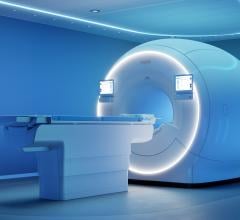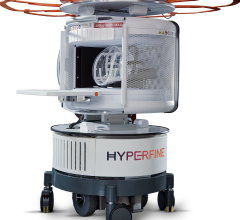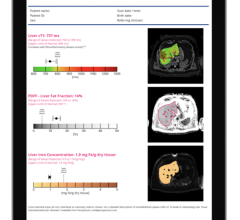February 20, 2015 - GE Healthcare initiated a voluntary field corrective action for all of its magnetic resonance imaging (MRI) systems with superconducting magnets that were manufactured from 1985 through today. The U.S. Food and Drug Administration (FDA) classified it as a Class 1 product recall Feb. 18.
GE said some MRI systems in India have been modified by service personnel or by equipment end users to disable the magnet rundown unit (MRU). The MRU is one of the methods that may be used to shut off the magnetic field in response to an emergency situation in or around the MRI system. In emergency situations, a disconnected MRU could delay removal of a ferrous object from the magnet, potentially resulting in life-threatening injuries. The MRU must be connected to the magnet at all times to maintain safety, GE said in statement.
The FDA recall notice classifies the safety issue as a training/employee error, not an equipment failure.
This correction applies to all GE Healthcare MRI systems with superconducting magnets, with include: Discovery MR450; Discovery MR750; Signa HDx; Signa HDxt; Signa HDi; GE 1.5T Signa HDe; Optima MR360; Brivo MR355; Signa Excite-HD 1.5T and 3.0T; Signa Excite 1.5T HD Twinspeed; Signa Excite 1.5T HD Echospeed; Signa Excite 1.5T HD Highspeed; 1.5T Signa Infinity TwinSpeed; 1.5T Signa Infinity EchoSpeed Plus; 1.5T Signa Infinity HiSpeed Plus; 1.0T Signa Infinity HiSpeed Plus; 1.0T Signa Infinity SmartSpeed; Signa Excite 3.0T; Signa Excite 3.0T HD; Signa Excite 1.5T TwinSpeed; Signa Excite 1.5T EchoSpeed; Signa Excite 1.5T HiSpeed; Signa Excite 1.5T SmartSpeed; Signa Excite 1.5T; Signa Excite 3.0T; Signa Contour/I; Signa OpenSpeed, Vectra; MR Max; Optima MR450w GEM; Discovery MR750W GEM; and the Optima MR450w.
How to Test System Functionality
As a preventative measure, the FDA recall notice includes instructions for users to confirm that the MRU is connected to the magnet by performing the following four-step test on the MRU:
1. Verify the green charger power LED is lit.
2. Depress and hold the test battery switch for 15 seconds. The green battery test LED should light and remain lit while the test battery switch is depressed.
3. Place the test heater toggle switch in the A position. The green heater test LED should light. If it does not light, depress test heater LED switch to verify that the LED is functioning.
4. Place the test heater toggle switch in the B position. The green heater test LED should light. If it does not light, depress test heater LED switch to verify that the LED is functioning. If the MRU test does not perform as described in each of the four steps above, GE Healthcare strongly recommends that the facility stops using the system and immediately call their GE representative. Customers with questions may contact their local service representative. For questions regarding this recall call 262.513.4122.
GE began notifying customers with superconducting magnets through an urgent medical device correction letter Jan. 6. This letter:
• Alerts the users of the possible concern.
• Advises users that the red rundown button should be pressed only in an emergency situation.
• Instructs the users to perform a short test that confirms if the magnet rundown unit is functioning properly and has not been disabled. This test is an action that operator manuals currently advise users to do on a regular basis.
• Informs the users that a GE Healthcare service representative will be visiting their site to inspect the magnet rundown unit and make any corrections if needed.
GE Healthcare is following up with all customers and will correct affected systems at no cost to customers. For additional information regarding this field action, please contact GE Healthcare’s Customer Service line (24 hours a day, seven days a week) at 800.437.1171.
For more information: www.accessdata.fda.gov/scripts/cdrh/cfdocs/cfres/res.cfm?id=132519



 January 21, 2026
January 21, 2026 








